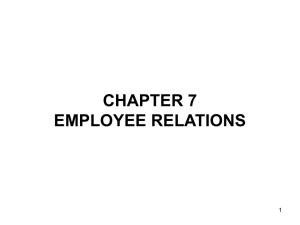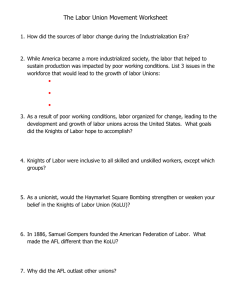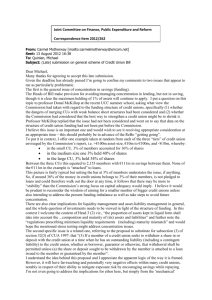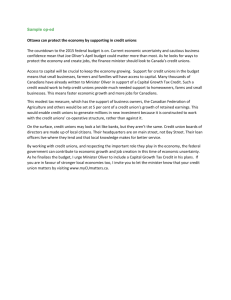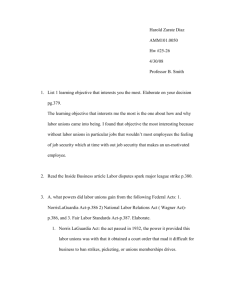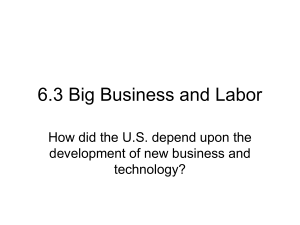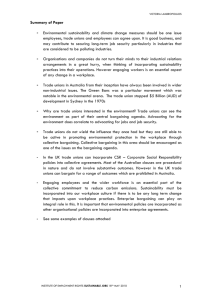Union Restart - Joshua M. Javits
advertisement
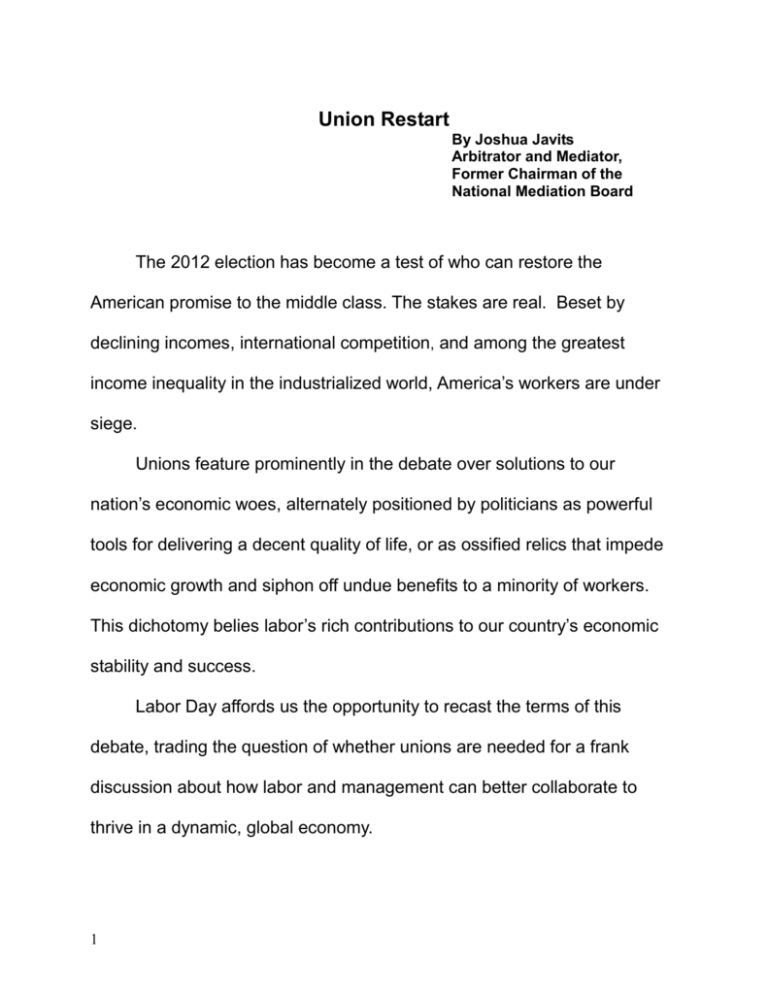
Union Restart By Joshua Javits Arbitrator and Mediator, Former Chairman of the National Mediation Board The 2012 election has become a test of who can restore the American promise to the middle class. The stakes are real. Beset by declining incomes, international competition, and among the greatest income inequality in the industrialized world, America’s workers are under siege. Unions feature prominently in the debate over solutions to our nation’s economic woes, alternately positioned by politicians as powerful tools for delivering a decent quality of life, or as ossified relics that impede economic growth and siphon off undue benefits to a minority of workers. This dichotomy belies labor’s rich contributions to our country’s economic stability and success. Labor Day affords us the opportunity to recast the terms of this debate, trading the question of whether unions are needed for a frank discussion about how labor and management can better collaborate to thrive in a dynamic, global economy. 1 The contributions of labor unions to the American workplace and economy are many, from strong compensation, pensions, and healthcare plans to broadly accepted protective legislation, including child labor laws, minimum wage and overtime pay, and health and safety regulations. By securing decent wages and benefits, unions have played a pivotal role in building the strong consumer base necessary to purchase American goods and services. Unions steer the nation towards a reasonable distribution of the country’s wealth. Today, unions are vilified for their success in bringing a measure of income security and fair working conditions to their members, and to workers generally through the “threat” of unionization. Critics characterize unions as reaping gains at the expense of others: in the public sector, at the expense of the taxpayer; in the private sector, at the expense of corporate flexibility and profitability. Much of the anti-union animus reveals a lack of understanding of precisely what unions do. Obviously, unions negotiate on behalf of their members with employers. This is a two-way street. Coercion is not a dominant factor in contract negotiations, and companies and public officials do not have to agree to union proposals. Indeed, the vast majority of negotiations result in voluntary agreements that accommodate the interests 2 of both labor and management without resort to economic weapons such as strikes and lockouts. After all, labor does not want “to kill the goose that lays the golden egg” and management does not want to undermine the motivation and loyalty that has made American workers the most productive in the world. Thus, the real debate ought not be about whether unions should exist in America, but instead about how unions, employers, and the collective bargaining process can best serve our modern economy and society. Unions and management look to legal structures created in the 1930s to provide the rule of law in labor-management disputes. Traditional collective bargaining envisions the renegotiation of pay and work rules at set intervals, frequently several years apart. Yet in today’s volatile, global market, rules that may be affordable to a company in year one of a collective bargaining agreement may rapidly become unaffordable by year three. Companies (and governments) may need to grow or contract quickly in advance of set periods to meet competitive pressures, or respond to technological changes. As a mediator and arbitrator, dealing with mechanics, teachers, pilots, fire fighters, welders and baseball players, I see countless conflicts that 3 unnecessarily escalate through failure to address issues when they arise. For instance, international airline negotiations can open flying opportunities to airlines that contract terms may hinder taking advantage of to the detriment of both employees and the airline. The traditional negotiation process, with its delay and misuse of leverage, is ill-suited to adapt in this kind of circumstance. Unions and management share an interest in adapting to such circumstances quickly and in gaining a competitive edge. This kind of creative problem joint solving produces the trust essential to growth and productivity. As economic realities have changed since the 1930s, so should the legal and structural relationships between labor and management. Traditionally, employees bring skills, knowledge, perseverance, and reliability to the workplace. Management brings finance, planning, organization, operations, and competitiveness. In the modern workplace, a rigid division of responsibility between employees and managers hinders collaboration, and in turn, prosperity. Fierce global competition and an economic downturn demand flexibility and creativity on the part of both unions and managers, potentially involving the assumption of novel roles and work rules, and cooperation with new partners. While labor and management can advance these goals, to fully realize this vision, our 4 nation’s leaders must embrace reforms that usher in a new era of collaboration and flexibility in labor relations. Germany offers an example of collaborative relations in action. Facing the recent recession, Germany implemented a work-sharing program to prevent widespread layoffs. Work hours were reduced by about 20% and wages were also reduced, with both individual companies and the German government picking up portions of employees’ lost pay. Current American labor laws pose an obstacle to the adoption of such cooperative and adaptive approaches by U.S. employees and companies by, for example, restricting bargaining to a limited set of issues, retaining rigid divisions between supervisors and workers, while, on the other hand, requiring negotiation to impasse in situations in which quick action is required to respond to business opportunities. Policy changes and alternatives should be explored to promote new avenues of labormanagement cooperation. Today, let us honor workers by abandoning rhetoric that antagonizes and undermines their advocates. Instead, let us direct our energies to forging a constructive relationship among labor, management, and government that promotes both fairness and competitiveness in meeting demands of global reach. There is surely honest labor in that. 5



